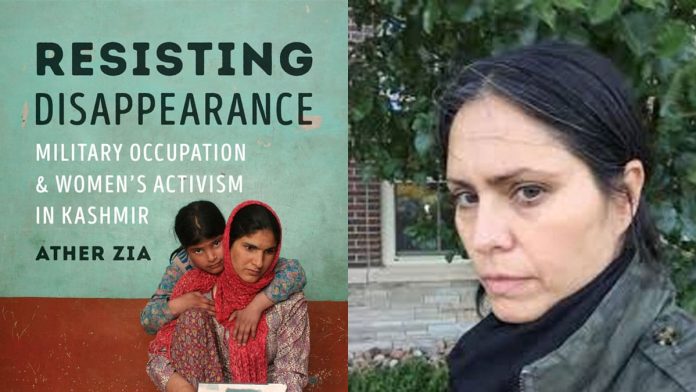Srinagar – As police raids on bookstores intensify across Jammu and Kashmir, renowned Kashmiri author and academic Ather Zia has condemned the government’s decision to ban several books, including her critically acclaimed Resisting Disappearance: Military Occupation and Women’s Activism in Kashmir.
Speaking to Maktoob, Zia described the move as an attempt to “erase narratives, testimonies, and lived realities of Kashmiris,” warning that the ban reflects “a larger pattern” of silencing voices that challenge official narratives.
“Some of these works, including mine, are rigorous, peer-reviewed studies published by reputed publishing houses and taught in classrooms across the world,” said Zia, who serves as an assistant professor at the University of Northern Colorado. “History, memory, and truth-telling are being criminalised.”
She stressed that the state’s actions are part of a broader strategy to maintain “complete narrative control” over Kashmir — not only through militarisation and surveillance but also by suppressing critical academic perspectives such as Critical Kashmir Studies, which document enforced disappearances, gendered resistance, mass graves, and military occupation.
Zia noted that the ban is not just about books but about disconnecting Kashmiris from their own histories. “This is an erasure that is not new to the people of Kashmir,” she said.
The government has invoked powers enabling police to seize banned books anywhere in India, with magistrates authorised to permit searches of homes and premises suspected of housing such titles. This clampdown was visible during the recently concluded Chinar Book Festival, where police inspected stalls to ensure the absence of prohibited works.
“In the digital age, these measures are moot but reveal a deep fear of ideas and the loss of narrative control,” Zia remarked. “Readers across the world should decide for themselves what to read and question how a book could be such a threat to any authority claiming legitimacy.”
Despite the ban, Zia asserted that “books live beyond bans” and vowed to continue her work. “This is not only about my book but about the witness of many Kashmiri voices being criminalised. We will continue to write, remember, and resist.”
Other authors impacted by the ban, including Hafsa Kanjwal and Anuradha Bhasin, echoed Zia’s concerns, emphasising that suppressing literature will not erase the truths it contains.




